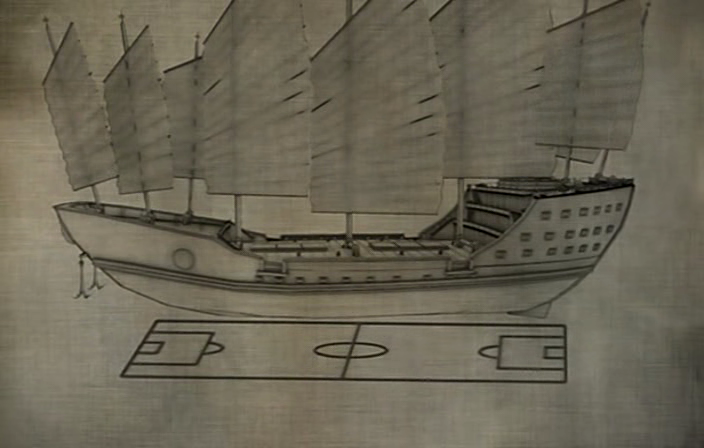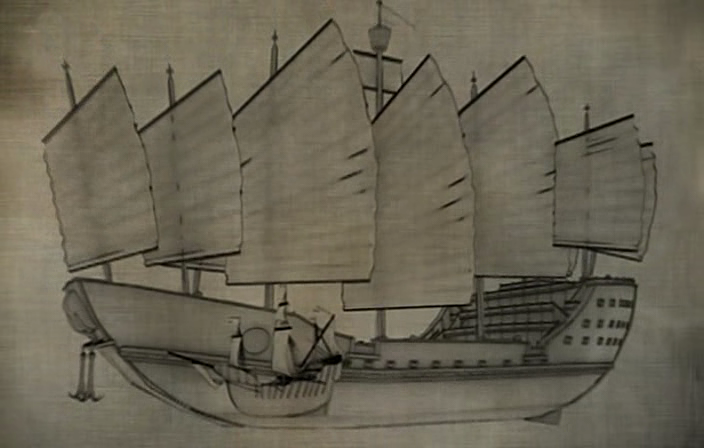I got this off this post on Simply Jean’s. What I am going to write has nothing to do with the post containing this quote, however.
On this date in 1142, the great Chinese general Yue Fei was executed by the Song dynasty he had loyally served.
Loyalty is what Yue Fei is known for, so unbendable that going on nine centuries later it can still work as shorthand for understanding the daily paper.
Yue fought for the Song Dynasty against the neighboring Jin Dynasty. He was a disciplined commander, an honorable and well-studied man – the very Confucian ideal.
The tale about him – the reason he is so well-recalled as a model of patriotism – is that his counterattack after the Jin overran the northern half of the Song realms was so effective that it threatened to repel the invaders. On the cusp of conquering the old northern capital, Kaifeng, he was supposed to have been ordered to lift the siege and return – an order Yue obeyed for the safety of his kingdom, even though it meant fatally confiding himself to his enemy’s power.
The story’s dramatics are to be doubted; he seems in fact to have been recalled (with other officers) after the battle and duly cashiered into a civilian post months before dying. Much of Yue Fei’s biography is recorded by undependable sources such as a fantastical biography written decades after his death, and a historical novel dating to centuries later. Even his death – whether execution or simple murder, and the means by which it was effected – is not reliably reported.
But his place in the firmament of Chinese heroes is well beyond dispute. Yue Fei was rehabilitated not long after his death, and a shrine built (still on public display to this day) with statues of his persecutors, often abused by visitors, carved kneeling in supplication.
And just as Yue Fei is a pinnacle of honor and loyalty, those who struck him down remain contemporary emblems of infamy. It is said that the Song minister Qin Hui, pressed for his reasons for ordering Yue’s execution, responded to the effect that “Though it isn’t sure whether there is something that he did to betray the dynasty, maybe there is.” As a result, the phrase maybe there is or it could be true denotes trumped-up charges in Chinese. In a more toothsome vein, the traitors who slew the general are also supposed to have given Chinese cuisine the fried-dough dish youtiao (油条). [Source]
Yue Fei (岳飞) has often been a classic Chinese example of the pinnacle of honor and loyalty. However, one of my secondary school teachers has commented that he is also a fine specimen of blind devotion (愚忠).
On one occasion whereby I discussed Yue Fei with a friend, we concluded that Yue Fei is not only blind in his devotion to the nation, we felt he is probably politically inept, as it is obvious that he failed to realize that his first and foremost loyalty should be to the incumbent Emperor, Gaozong (高宗).
Thus, whatever the truth maybe, the manner of Yue Fei’s death is really immaterial. As far as I am concerned, there is no doubt that what killed him would be his single-mindedness to ‘right the Humiliation of Jingkang’. (Incidentally, in one of Yue Fei’s famous lamentations, 满江红, the patriot himself lament of his failure to right the humiliation of Jingkang – 靖康之耻犹未雪)
Here’s a historical background of what happened during the ‘Humiliation of Jingkang’ (靖康之耻, also ‘Tragedy of Jingkang’ 靖康之难) – In 1127AD, the Jurchens (女真) captured the Northern Song Dynasty’s (北宋) capital of Kaifeng (开封), and took the retired emperor Huizong (徽宗) and the succeeding Emperor Qinzong (钦宗) of Song into captivity. Remnants of the Song royal family fled south of the Yangtze River to establish the Southern Song Dynasty’s (南宋) new capital at Lin’an (临安), and the remaining forces rallied under the self appointed Emperor Gaozong.
Thus, to actualise his dreams, Yue Fei would have to militarily defeat the Jin State (金国) of the Jurchens, and free the two captured Emperors (known as ‘二圣皇帝’). A lofty ideal to the Chinese people at that time but what does it mean then to the incumbent who has only proclaimed himself the Son of Heaven and has now tasted absolute power?
It would be an utterly unpleasant prospect, because that mean he would have to step down and return to be a mere prince so that the rightful ruler, Qinzong, can resume his rule. The best scenario for Gaozong would be for the war to be long and drawn out, with both sides gaining no advantage over the other so the reality of the the two Emperors returning continue to diminish day after day.
Thus, Gaozong would privately have considered Yue Fei as one of the most disloyal officials and an obstacle to his vision. However, as long as the possibility of his brother and father returning from captivity remains remote, Gaozong would be happy to allow Yue Fei – the patriot, and also a commanding general with a victorious and loyal personal army – to go kick some Jurchen butt from time to time. It keeps the people’s spirits up while it gives the impression that the Emperor himself is selflessly and tirelessly working to bring his father and brother back, so the people will not criticise him and question his legitimacy.
So where does Qin Hui (秦桧) fit into all these?
History often portray Qin Hui as a traitorous, and evil official – as much as Cao Cao (曹操) is portrayed as a scheming, evil, ungrateful and murderous individual in the ‘Romance of the Three Kingdoms’ (三国演义). In my opinion, other than being just Premier (宰相), Qin Hui was probably also Yue Fei’s political rival in the Imperial Court. Much like Dick-head Cheney is a Hawk and (perhaps) Condolezza Condom-lezza Rice is a Dove.
Gaozong probably prefers Qin Hui’s dovish political views as opposed to Yue Fei’s hawkish views. Qin Hui may also know Gaozong never truly desired for his brother Qinzong and father Huizong to return, and if Yue Fei is to succeed in freeing the other two Emperors, Qin Hui might find himself removed from his position as Premier anyway. I speculate that it may have been implicit to Qin Hui, that he would have to kill Yue Fei when the time demands it, while sparing the Emperor the blame of murdering a loyal official and patriotic general. Whoever said ‘plausible deniability’ is an American political doctrine?
So, the closer Yue Fei is about to attain the national agenda and victory, the more likely Gaozong will want him killed and the more Qin Hui wants Yue Fei removed. On the other hand, the Jurchens also become more desperate as Yue Fei gets closer to pushing them out of the occupied territories and liberating the former Song Dynasty capital. But instead of showing any sign of weakness, they instead demanded that Yue Fei be killed as a gesture of goodwill on the part of the Song and the pre-condition to renewed peace talks (绍兴和议).
This presented Qin Hui with an unique opportunity. He can now not only achieve peace with the Jurchens by simply performing the dastardly deed, and also keep his position safe by removing a political rival. On top of that, he would also be gaining the Emperor’s favor in removing a thorn from his side, as historical records have proven by the fact Qin Hui was given unprecedented power during Gaozong’s reign. It was one stone and three birds. Would you have passed it up, if you were in the same shoes?
Thus, if the gruesome manner of Yue Fei’s death – skinned alive before he was executed – is really true, I have always asked why did the Emperor even allowed it to happen when there was no concrete evidence whatsoever of Yue Fei’s treason. That’s not mentioning there was never any written confessions whatsoever – even one obtained under torture – to confirm the charges. In the end, Yue Fei was sentenced to death simply because he ‘maybe disloyal’ or ‘may have committed treason’ (莫须有).
Sadly, Yue Fei was nothing more than an unfortunate sacrificial lamb in an elaborate political maneuver and power struggle of the Imperial Court at that time.
It is even more interesting to note that many years after Qin Hui’s death, the Jurchens repudiated the peace treaty and the next Emperor now declared Yue Fei a patriot and a hero. At the meantime, he stripped Qin’s descendants of the titles and grants, and labelled Qin Hui and those ‘apparently responsible’ for Yue Fei’s death as traitors. All the more the reason for me to believe Yue Fei was nothing more than a political pawn sacrificed for whatever that meets the political agenda then, and if he would have been more attuned to the desires of his Lord, he might still have gone down in history as a patriot without dying a gruesome death.
Oh well… we probably won’t even talk about him like some deity if that was the case.




